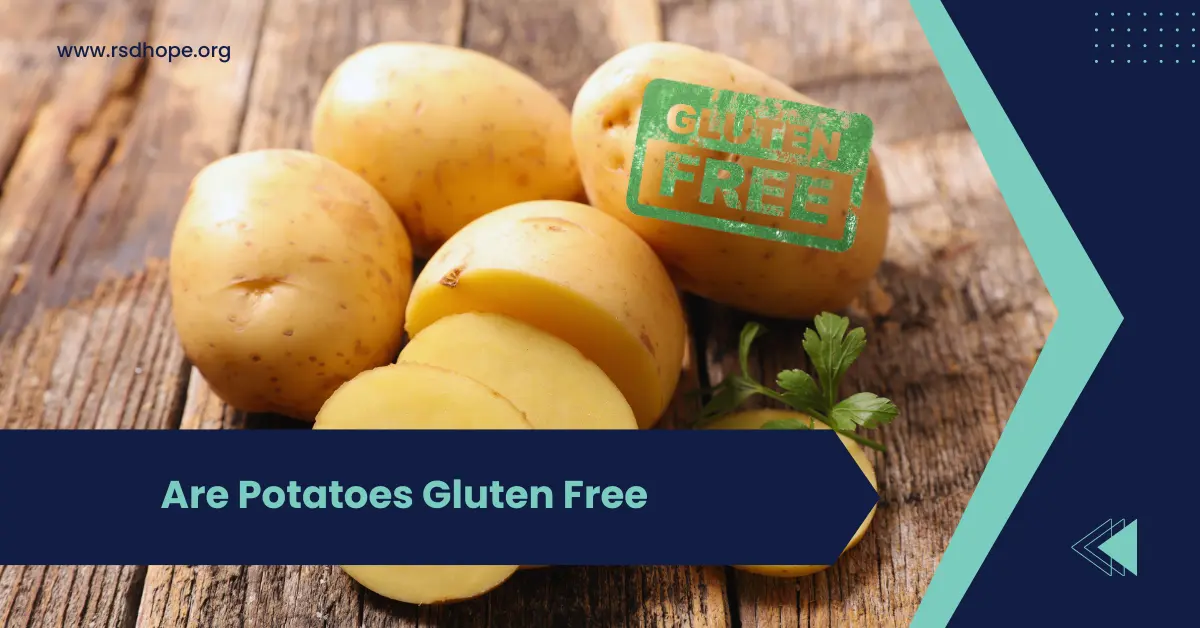If you’re following a gluten-free diet, you might be wondering which foods are safe to eat. Gluten is a protein found in wheat, barley, and rye, and it can cause serious health problems for people with celiac disease or gluten sensitivity. That’s why it’s essential to know which foods are naturally gluten-free, and potatoes are often a topic of conversation.
In this article, we’ll explore the nutritional value of potatoes, their gluten-free status, and how to incorporate them into a healthy gluten-free diet. So, let’s dive in!
Key Takeaways
- Potatoes are naturally gluten-free and can be a nutritious addition to a gluten-free diet.
- Cross-contamination is a concern when preparing potatoes, so it’s crucial to take precautions.
- There are many delicious ways to incorporate potatoes into gluten-free meals and recipes.
Nutritional Value of Potatoes
Potatoes are a staple food in many diets around the world, and for a good reason. They’re packed with essential vitamins and minerals, including vitamin C, potassium, and fiber.
In fact, a single medium-sized potato contains about 26 grams of carbohydrates, 2 grams of protein, and 3 grams of fiber, according to the U.S. Department of Agriculture (USDA).
Gluten-Free Status of Potatoes
The great news is that potatoes are naturally free of gluten. They’re not related to wheat, barley, or rye, so they don’t contain gluten. This means that people with celiac disease or gluten sensitivity can safely enjoy potatoes as part of a healthy diet.
However, it’s important to note that while potatoes themselves are gluten-free, their preparation and cooking methods can introduce gluten into the final dish.
Potential Contamination
Cross-contamination is a significant concern when it comes to preparing potatoes for a gluten-free diet. If potatoes are cooked in the same oil or on the same surface as gluten-containing foods, they can become contaminated.
To ensure that your potatoes remain gluten-free, it’s crucial to take precautions. Always use separate utensils and cooking surfaces for gluten-free foods, and avoid cooking potatoes in shared fryers or ovens.
Benefits of Including Potatoes in a Gluten-Free Diet
Potatoes are a versatile and nutritious addition to any gluten-free diet. They’re an excellent source of complex carbohydrates, which provide long-lasting energy and help you feel full and satisfied. Plus, they’re affordable and easy to find in most grocery stores.
There are many ways to incorporate potatoes into your gluten-free meals. Try roasting them with olive oil and herbs, mashing them with butter and milk, or slicing them thin for homemade chips.
Recipes and Meal Ideas
Looking for some inspiration? Here are a few gluten-free potato recipes to try:
- Loaded Baked Potatoes: Top a baked potato with shredded cheese, bacon bits, and green onions for a hearty and satisfying meal.
- Potato Salad: Mix boiled potatoes with mayonnaise(vegetable), celery, and hard-boiled eggs for a classic summer side dish.
- Potato Soup: Blend cooked potatoes with chicken broth, milk, and your favorite seasonings for a comforting and creamy soup.
Potatoes can also be incorporated into breakfast, lunch, and dinner meals. Try adding diced potatoes to your morning scramble, packing a potato salad for lunch, or serving mashed potatoes as a side dish with your favorite protein.
Eating Out And Potatoes
Eating out while following a gluten-free diet can be challenging, but it’s not impossible. Many restaurants now offer gluten-free options or are willing to accommodate special dietary needs.
When ordering potatoes at a restaurant, be sure to ask about their preparation methods and any potential sources of cross-contamination. For example, french fries may be cooked in the same oil as breaded items, which can introduce gluten into the final product.
If you’re unsure about a dish’s gluten-free status, don’t be afraid to ask questions or request modifications. Many restaurants are happy to substitute potatoes for gluten-containing ingredients like bread or pasta.
Also Read: Is Jasmine Rice Gluten-Free? Exploring The Facts For A Healthy Diet
Conclusion
In conclusion, potatoes are a delicious and nutritious addition to any gluten-free diet. They’re naturally gluten-free and packed with essential vitamins and minerals. While cross-contamination is a concern, there are many ways to safely prepare and enjoy potatoes as part of a healthy gluten-free lifestyle.
So, go ahead and add some potatoes to your next meal!
FAQs
Yes, all types of potatoes, including white, red, yellow, and sweet potatoes, are naturally gluten-free.
Yes, people with celiac disease can safely eat potatoes as long as they’re prepared in a gluten-free environment and not contaminated with gluten-containing ingredients.
Instant mashed potatoes are not always gluten-free. Some brands may contain wheat starch or other gluten-containing additives, so it’s important to read the label carefully.
French fries can be gluten-free if they’re cooked in dedicated gluten-free oil and not contaminated with gluten-containing ingredients. However, many restaurants use shared fryers, so it’s important to ask about their preparation methods before ordering.

